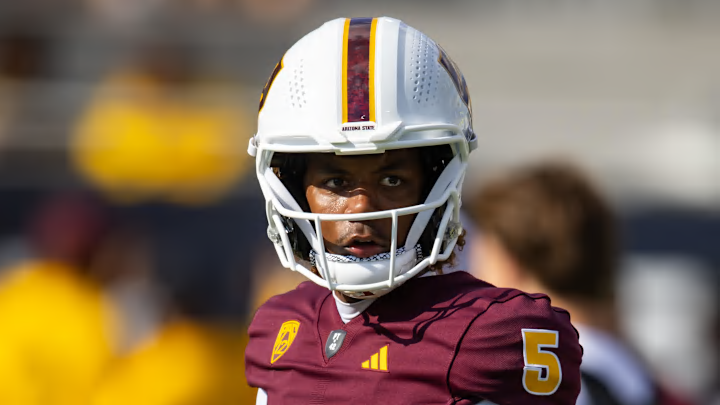The recent lawsuit filed by quarterback Jaden Rashada against Florida coach Billy Napier and others has brought the complex issue of Name, Image, and Likeness (NIL) deals into the national spotlight.
As the legal battle unfolds, it highlights not only the potential pitfalls of unchecked booster involvement but also the ambiguity surrounding NIL regulations during the time of the alleged misconduct.
At the center of the controversy is the alleged $13.85 million NIL deal that Rashada claims was promised to him by individuals associated with the University of Florida, including top booster Hugh Hathcock and former staffer Marcus Castro-Walker. The lawsuit alleges that Napier, Hathcock, and Castro-Walker "orchestrated and executed a fraud upon Jaden and were substantially and knowingly assisted by one another in carrying out the fraud."
However, a key factor in the university's potential defense is the lack of direct institutional involvement. Notably, neither the University of Florida nor the University Athletic Association are named as defendants in the lawsuit. This could potentially provide plausible deniability for the university and Napier, as the alleged actions were carried out by independent boosters and collectives.
"We do not comment on ongoing litigation, and neither the University Athletic Association nor the University are named in the complaint," stated UAA spokesperson Steve McClain, distancing the institution from the allegations.
Statement from Florida athletic department spokesman Steve McClain regarding Jaden Rashada's lawsuit against Billy Napier:
— Andy Staples (@Andy_Staples) May 21, 2024
“We do not comment on ongoing litigation, and neither the University Athletic Association nor the University are named in the complaint. The UAA will…
The lack of a formal, legally binding contract for the alleged $13.85 million deal could also work in the university's favor. According to the lawsuit, the deal involved promises from various parties, including boosters and NIL collectives, without a clear and unified agreement.
"The collective never had the money and yet they were making all of these promises to the kid," Rashada's attorney Rusty Hardin told CBS Sports, highlighting the ambiguous nature of the alleged deal.
The lawsuit paints a concerning picture of overzealous boosters and questionable promises made during a time when NIL regulations were still being established. As the legal proceedings state, "Jaden's miserable experience reveals, in stark and dramatic detail, what can happen to young student-athletes when wealthy, win-at-all-cost alumni insert themselves into college football's recruiting process."
While the alleged actions of certain individuals may have been unethical or even illegal, separating the university's role from the actions of independent boosters and collectives will be crucial in the defense's strategy. The university's primary responsibility is to uphold the values and principles of college athletics, including maintaining a level playing field and preventing the undue influence of external entities on the recruiting process.
As the case progresses, it is likely that the defense will argue that Napier and the university were not directly involved in the alleged fraudulent activities and that the lack of a formal, enforceable contract for the NIL deal complicates the allegations of fraud and misrepresentation.
Regardless of the outcome, this high-profile case has shed light on the need for clearer regulations and oversight surrounding NIL deals. The potential for exploitation and misconduct remains a concern as institutions, boosters, and student-athletes navigate this rapidly evolving landscape.
